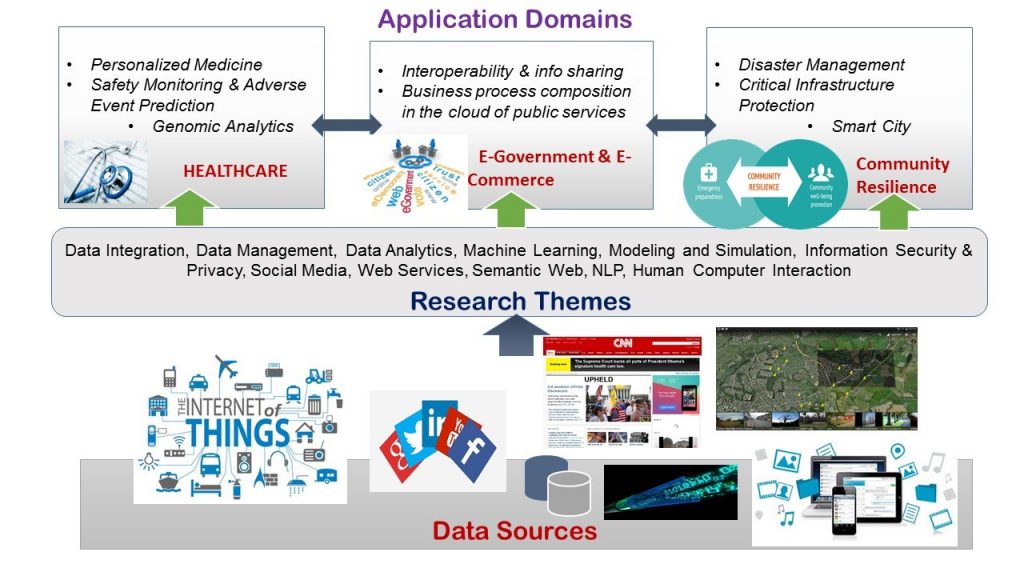About Us
The mission of CARTA is to advance research and education focusing on the realm of streaming applications building cognitive analytics systems of Big Datasets generated in various domains including Cyberspace, Healthcare, Internet of Things (IoT) and the Scientific arena. The research agenda of the proposed Rutgers I-DSLA site will be complementary and synergistic to that of CARTA.
The research projects leverage on our research team’s expertise in data analytics, machine learning, data management, information security and privacy, social media, Internet of Things, Web services, and semantic Web, focusing on the application domain problems in healthcare, e-commerce, e-government, community resilience.

- healthcare domain: our comprehensive and multidisciplinary program focuses on the development of data analytics approaches that address research challenges related to personalized medicine, safety monitoring, and adverse event prediction, and Genomic analysis. Our work in this area has evolved into real-time analytics to develop an aggregated longitudinal data store for a holistic, real-time view of patients’ health data as well as integrating this data with the social and mobile world.
- e-government and e-commerce domains: our research work addresses fundamental research problems related to interoperability, business process composition and management, and privacy-preserving data analysis. Specifically, we are developing techniques to enable dynamic and on-the-fly composition and customization of business processes based on available resources in the services Cloud. This needs to be done in real-time to enable seamless processing of e-commerce transactions. Also often, there is a need to provide e-government services in real-time – for example analysis of twitter feeds to help with the real-time dispatch of emergency vehicles and response teams, social services, and other government services. We are collaborating with the city of Newark to help position Newark as a smart city by collecting, integrating, and analyzing data from different sources across various geographical locations and enable better decision making in real-time.
- application areas: we have applied our work in building systems for e-government workflows and processes and business services. In the community resilience domain, our work addresses fundamental research problems related to disaster management, critical infrastructure protection, and smart cities for economic development. We are working with the city of Newark and industrial partners to analyze local government data and the Newark Industrial Solution Center to enable advanced manufacturing in the city of Newark. This requires real-time supply chain management and analytics to connect 45 anchor institutions (Panasonic, Prudential, Rutgers, etc.) to local small and medium manufacturers to provide new market opportunities and promote sustainable supply chains and resource efficiency. The analytics will address the economic policy analytics to identify the enabling factors and barriers and to measure predict the policy efficacy. The public safety-related data analytics will allow cities to identify at-risk areas and predict at risk of recurrent crimes.
We also address the information overload and personalization issues such as news article classification, news summarization.